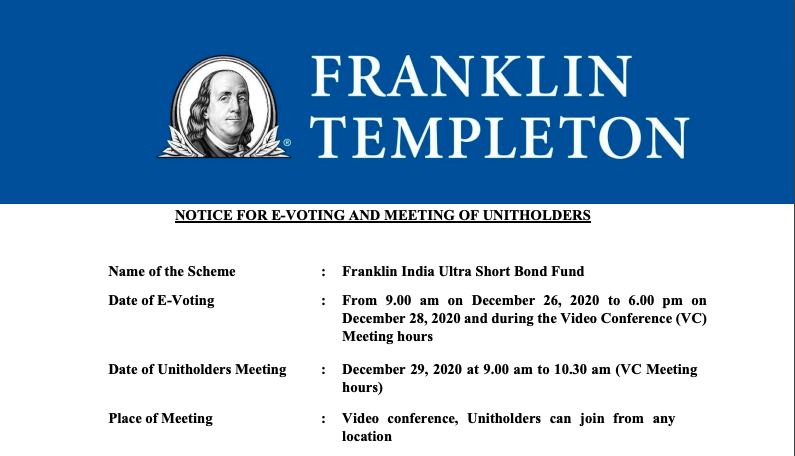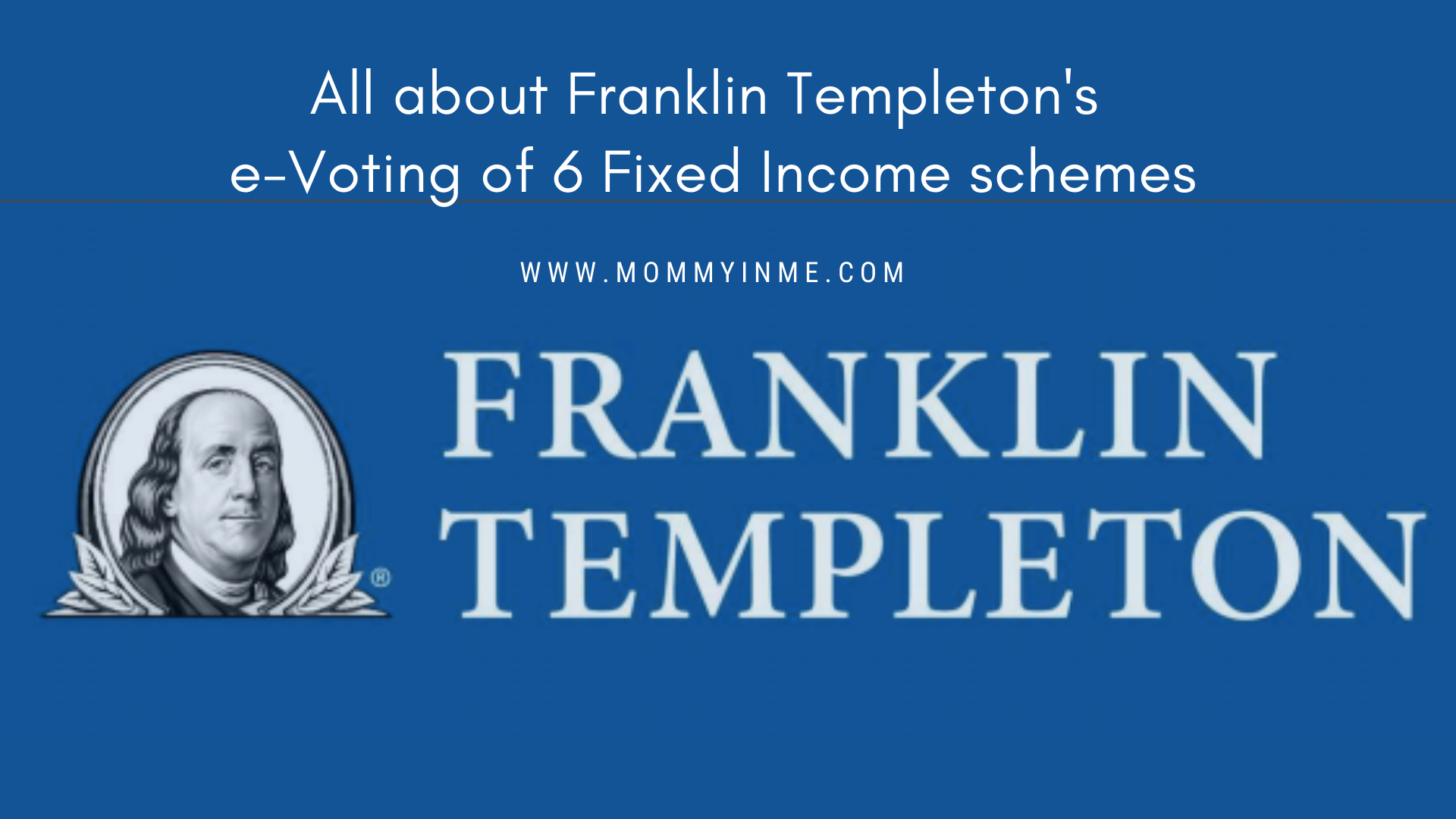Franklin Templeton schemes:
A diversified portfolio has always been something that we have always focussed upon. And investing in fixed income schemes for easy liquidity, tax benefits, containing the exposure has always been a part of the strategy. Last week, we had a video discussion with Franklin Templeton India’s President Mr. Sanjay Sapre, which revolved around their 6 Fixed income Mutual Fund schemes that were closed in April’2020. 2020 pandemic has caused an economic crisis like no other. And this was the reason, why many funds underperformed, a few crashed, causing a huge loss to their investors. Though the closure of Franklin Templeton’s 6 schemes was unprecedented, there is good news to follow.
A little background about the 6 Franklin Templeton schemes that were closed:
Hit by the pandemic, Franklin Templeton voluntarily winded up 6 of its Fixed- Income (debt) schemes, which had cumulative assets worth ₹26,000 crores. The step was taken due to the losses in the financial market and normalcy wasn’t expected to return soon, due to the impact of the pandemic.
The 6 Franklin India schemes were:
- Low Duration Fund
- Dynamic Accrual Fund
- Credit Risk Fund
- Short Term Income Plan
- Ultra Short Bond Fund and
- Income Opportunities Fund
E-Voting for Unit Holder’s consent:
As a part of the legal process, the Hon’ble Supreme Court had directed the fund house to seek the unit holder’s approval for winding up these schemes on December 3rd. This e-voting is due to happen between Dec26-28. You can read out the FAQ’s here .
The good news is Franklin Templeton is all set to strategize as per the Investor sentiments. When asked about steps being taken to bring the confidence of retail investors back, Mr.Sapre answered,
“The only thing that will bring the confidence back is money in the bank accounts of our investors. No beating around the bush, but getting their money back soonest will bring in the confidence. And we have been working towards this. The portfolio of these schemes and individual fund values are completely transparent with our every investor. “
And I’m glad that the company understands the sentiments, and is determined to release the funds as per the NAV if the right e-voting decision is made by the unitholders.
Things you need to know about Franklin Templeton’s E-voting:

1. E-voting will happen from 9 am on 26th December till 6 pm on 28th December
2. This will be followed by Unitholders Meeting on December 29th, (9 am-10:30 am)via Video Conferencing. You can join it from any location.
3. E-voting and unitholder’s meeting links are :
E-Voting: https://evoting.kfintech.com
Unitholders Meet: https://emeetings.kfintech.com/
4. An email will be sent to all Unitholders with the username and password to join and cast their vote.
5. Each investor can vote Yes/No (for winding up the schemes) per fund
6. The majority of the votes will determine the consequence, whether the schemes will wind up or are reopened.
The decision around the right vote:
Mr. Sapre said, “The good part is that the securities of these funds were decent enough as they managed to collect close to Rs40,000Cr and 4 of the 6 schemes are Cash positive. The rest of the 2 schemes would also soon turn cash positive. Thus it is imperative that investors cast the right vote to get their money back faster”
With investors looking up to understand the outcomes of their votes, here is something you should know,
What If I Vote “Yes”, for winding up of the 6 schemes:
If the majority of investors vote “Yes”, this will mean systematic winding up of all these 6 schemes. This will help in No distress selling of the assets. As a result, the assets will be sold in a timely manner and they will get their fair value in the market. Since 4 of these schemes are already Cash positive, a Yes, in this case, would help Investors getting their money back “faster” and with minimum losses.
When asked about the 2 schemes (Franklin India short-term income plan and The India income opportunities plan), which are not cash positive,
Mr.Sapre said that “they are very optimistic that these 2 schemes will also turn out Cash Positive in their entirety in the absence of distress sale”.
What If I Vote “No”, for winding up of the 6 schemes:
If the majority votes for a “No”, then these schemes would be reopened for purchase and redemptions. And in the scenario, it is expected that there will be a rush of redemptions, which could lead to a “fire sale” of the securities. Franklin Templeton will have to sell these securities and since the volume of securities are huge and the case is transparent, there will be a deep impact [decline] on the NAV. The decline in the NAV may result in losses to the investors.
Concluding Note:
It is very important that Unitholders understand the portfolio of these Fixed-Income funds, the current market volatility, and cast the right vote, to get the money back in their bank accounts soon. Franklin Templeton is determined to return monies in a phased and systemic manner too!
Disclaimer: This post does not direct investors to vote for any particular decision. This post simply has the facts that were discussed during the video chat for Finance experts and Bloggers with Franklin Templeton India's President. Vote after reaing all the facts and not getting influenced by any means. Mutual Fund investments are subject to market risks, read all scheme related documents carefully.






Nice article